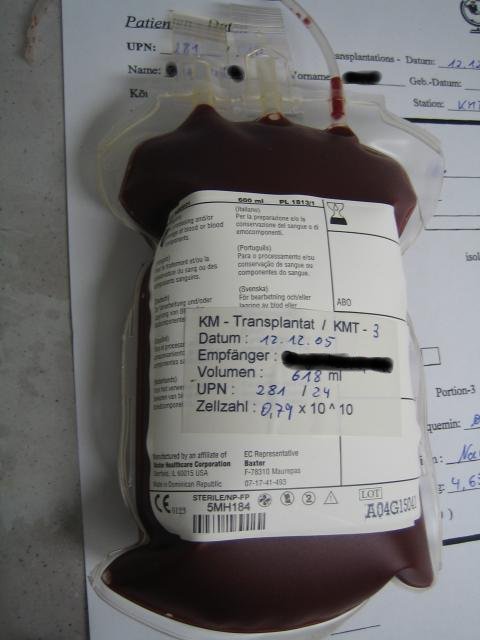
Recently Diagnosed or Relapsed? Stop Looking For a Miracle Cure, and Use Evidence-Based Therapies To Enhance Your Treatment and Prolong Your Remission
Multiple Myeloma an incurable disease, but I have spent the last 25 years in remission using a blend of conventional oncology and evidence-based nutrition, supplementation, and lifestyle therapies from peer-reviewed studies that your oncologist probably hasn't told you about.
Click the orange button to the right to learn more about what you can start doing today.
- You are here:
- Home »
- Blog »
- Multiple Myeloma »
- Multiple Myeloma Chemotherapy- Overall Survival vs. Progression-free survival
Multiple Myeloma Chemotherapy- Overall Survival vs. Progression-free survival

“In my opinion, one must applaud the decision of the FDA to use progression-free survival (PFS not OS) as an acceptable primary endpoint in cancer (MM) drug development.”
I’m not a board-certified oncologist. I’m a long-term survivor of multiple myeloma. Dr. Maurie Markman, who wrote the article below, is a board-certified oncologist. I’ve lived through induction, consolidation, ASCT, radiation, and surgery to manage my MM. When the FDA approves a multiple myeloma chemotherapy regimen, Dr. Markman and I see MM survival very differently.
Dr. Markman would agree that chemotherapy is toxic and therefore causes short, long-term and late stage side effects to cancer patients. In my opinion then, the only reason to take these horrific, toxic drugs is to live longer (overall survival).
In my opinion, no oncologist who cares about his/her patients should expose them to the toxicity of multiple myeloma chemotherapy unless it is with the goal of longer overall survival.
In Dr. Markman’s opinion, a MM patient should undergo expensive, toxic therapies with the hope of a longer first remission (progression-free survival). Dr. Markman is advising his patients to:
- spend the time,
- spend the money and
- suffer the short, long-term and late stage side effects,
all for a longer remission. According to Dr. Markman, “In my opinion, one must applaud the decision of the FDA to use progression-free survival as an acceptable primary endpoint in cancer drug development.”
To be clear, multiple myeloma chemotherapy, radiation, surgery, FDA approved therapies did little for me other than causing pain, suffering and expense. Since my MM diagnosis in early 1994, every therapy that has provided either length of life or quality of life, has been evidence-based but not FDA approved.
One of the many challenges that newly diagnosed patients face is the fact that conventional oncology considers MM to be incurable. My opinion is that MM’s incurability is because conventional oncology shoots for longer remissions but not length of life. JMO…
If you’ve been diagnosed with multiple myeloma, and you would like to learn more about the spectrum of myeloma therapies-both conventional and non-conventional, scroll down the page, post a question or comment and I will reply to you ASAP.
Hang in there,
David Emerson
- MM Survivor
- MM Coach
- Director PeopleBeatingCancer
Recommended Reading:
- Myeloma Chemotherapy- Hey FDA! 5-7 years?!
- Myeloma Stages- Diagnosis, Prognosis
- Multiple Myeloma Overall Survival Statistics
Overall Survival Is an Outdated Requisite for Drug Approval in Cancer Therapy
“I want to briefly discuss a very important but controversial topic: the mandated role of overall survival in phase 3 randomized trials in the approval of antineoplastic agents for use in the United States.
There has been a major shift by the US Food and Drug Administration (FDA) to include progression-free survival as an acceptable endpoint in randomized phase 3 trials for the approval of drugs. This is appropriate, in my opinion. But a number of individuals, including prominent academics, have claimed that this is a meaningless surrogate, and unless you can prove overall survival or perhaps some other evidence of benefit, then drugs should not be approved.[1,2,3] The gold standard, in the opinion of these individuals, is overall survival.
There are a number of examples as to why this insistence on overall survival in randomized phase 3 trials is problematic.
Therapy given after a patient progresses while on treatment in a trial can have many potential benefits. Cancer is becoming more of a chronic illness, particularly in clinical settings where we have new and improved anti-cancer agents. After a patient progresses, they still may receive up to three or more agents that can impact favorably on survival. The point is not that patients do not have improved survival—they do—but you cannot prove it in the randomized phase 3 trial because of the therapy that is used after the patient progresses.
The classic example is the use of imatinib for the treatment of chronic myelocytic leukemia. The definitive frontline study[4] demonstrated the tremendous value in terms of disease progression in favor of imatinib compared with the standard of care at the time, interferon-based therapy. That randomized phase 3 trial never showed an improvement in overall survival in favor of imatinib because there was a crossover relatively quickly to imatinib in the patients who were in the control arm.
Another example is crizotinib compared with chemotherapy in the management of ALK mutation-positive non–small cell lung cancer. The superiority of crizotinib compared with chemotherapy is well recognized, and yet in the definitive phase 3 randomized trial that was reported last year,[5]there is no statistically significant improvement in overall survival in crizotinib-treated patients versus chemotherapy-treated patients. This is because the majority of patients in the control arm of the trial switched over to crizotinib or another such drug at the time of progression. Thus, all of the patients entered in that trial benefited from the use of an ALK inhibitor in the patient population with ALK abnormalities. But you could not prove an improvement in overall survival because of the crossover, either allowed in the trial or simply what happens in the standard of care.
In ovarian cancer, after a patient progresses in the front-line or second-line setting, we have as many as five other regimens that can be employed and will impact overall survival, making it very difficult, if not impossible, to show an improvement in overall survival for the participants in a trial.
This continues to be an important discussion. Clearly we are dealing with many issues that go beyond the trials, including the cost of the agents. But the insistence that proven overall survival be mandated to show that drug A is better than drug B, or drug A plus drug B is better than drug C, simply will deny the approval and, most important, deny the opportunity for patients to receive effective therapies.
In my opinion, one must applaud the decision of the FDA to use progression-free survival as an acceptable primary endpoint in cancer drug development.
Thank you for listening.
Dr. Maurie Markman
Isatuximab plus pomalidomide and low-dose dexamethasone vs pomalidomide and low-dose dexamethasone in patients with relapsed and refractory multiple myeloma (ICARIA-MM): A randomized, multicentre, open-label, phase 3 study
“In this randomized, multicentre, open-label, phase 3 study done at 102 hospitals in 24 countries in Europe, North America, and the Asia-Pacific regions of adults with relapsed and refractory multiple myeloma..
It was discovered that in people with relapsed and refractory multiple myeloma, progression-free survival was notably enhanced by adding isatuximab to pomalidomide–dexamethasone.
Thus, for the management of relapsed and refractory myeloma, isatuximab is a significant new treatment choice, especially for people who become refractory to lenalidomide and a proteasome inhibitor…”



